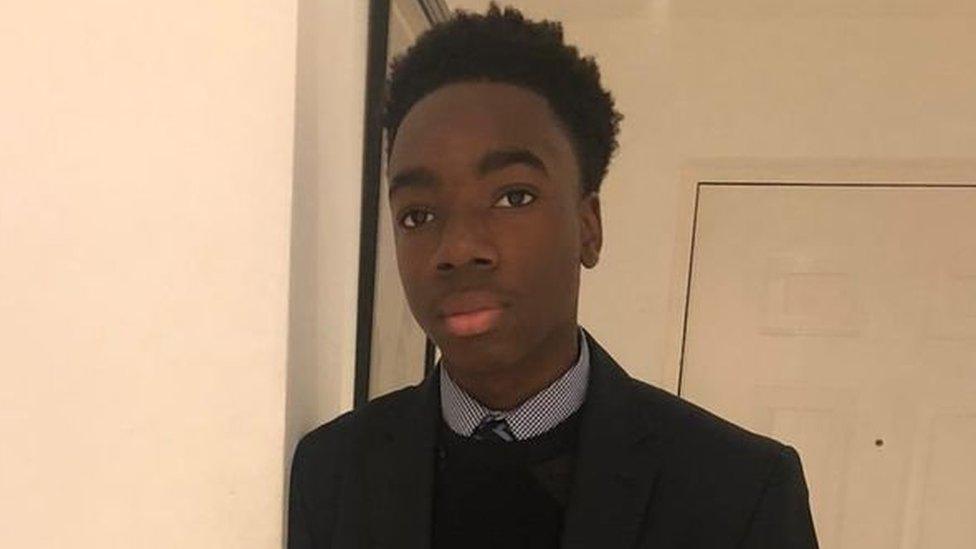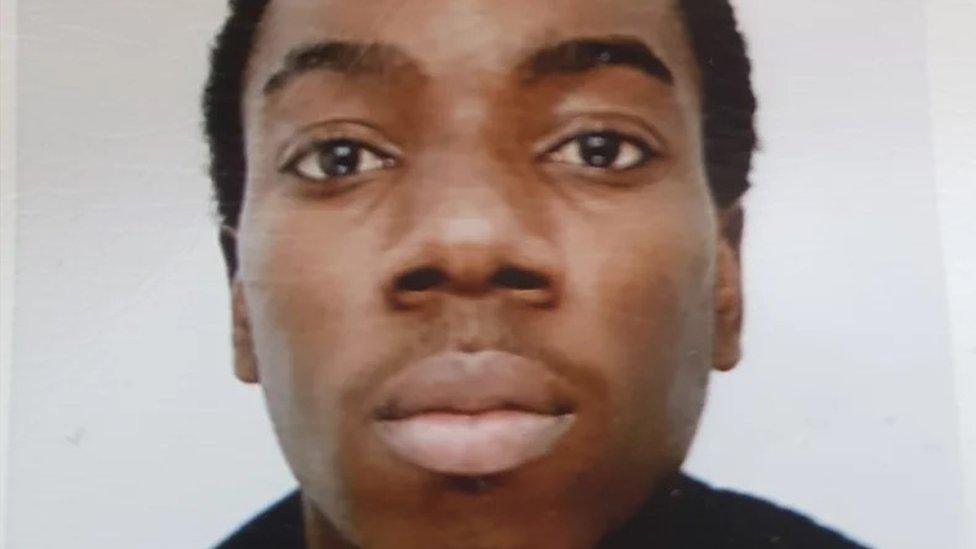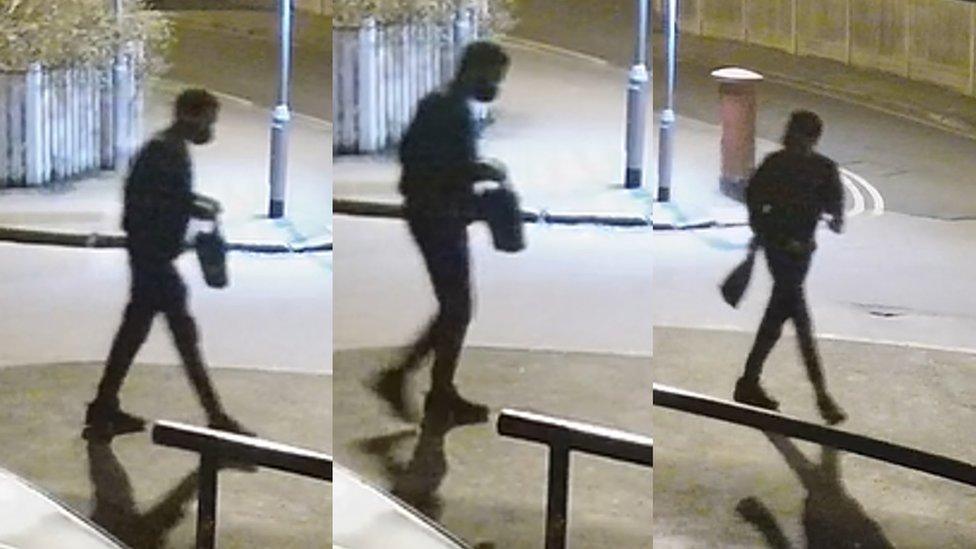Richard Okorogheye: 'No activity' on missing student's phone, says Met
- Published

Mr Okorogheye was in the first year of a business and IT degree at Oxford Brookes University when he disappeared
A student with sickle cell disease who has been missing for more than a week has not made any calls on his phone, the Met Police said.
Richard Okorogheye has not been seen by his family since 22 March when he left their home in the Ladbroke Grove area.
The 19-year-old, who has sickle cell disease, later took a taxi to Loughton, Essex, where he was spotted on CCTV.
Since then there has been "no activity on his phone that we are aware of," Det Supt Danny Gosling said.
Officers are still investigating whether there has been any financial activity under Mr Okorogheye's name and the teenager's laptop and computer are being examined at a police lab for clues, Mr Gosling added.

The 19-year-old left home without his medication
Mr Okorogheye did not take his medication or any money when he left home.
He was seen boarding the number 23 bus southbound in Ladbroke Grove, Kensington, at about 20:45 GMT on 22 March.
CCTV footage showed the Oxford Brookes student was dressed all in black and had a black satchel bag with a white Adidas logo across his lower back.
He is now known to have taken a taxi from west London to Loughton where he was then captured on CCTV, walking alone on Smarts Lane towards Epping Forest at 00:39 GMT on 23 March.
"A large number of special search officers are focusing on the Epping Forest area," Mr Gosling said.

CCTV images show Richard Okorogheye at about 00:30 BST in Loughton, in the Epping Forest
Mr Okorogheye's mother, Evidence Joel, previously claimed that when his disappearance was first reported, police "did nothing" and initially told her he was an adult, who could go out and come back whenever he wanted.
She said she told officers he had "no jacket, no money, so I'm worried, I'm concerned about his wellbeing" but that it was only on the Sunday and Monday following his disappearance that she "felt like they were doing something".
For more information about sickle cell disease go to the Sickle Cell Society, external website.
Related topics
- Published31 March 2021

- Published30 March 2021

- Published29 March 2021
